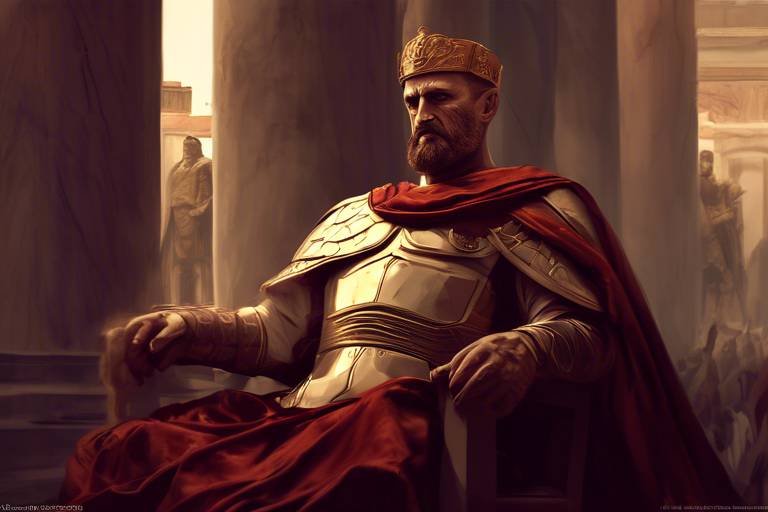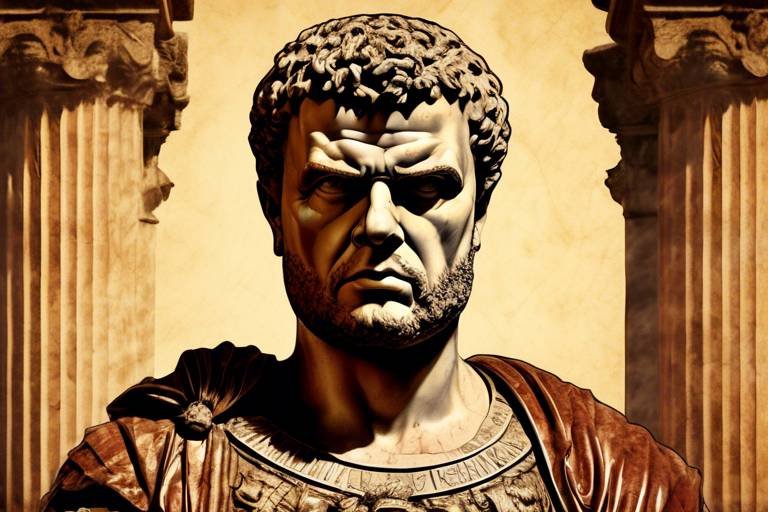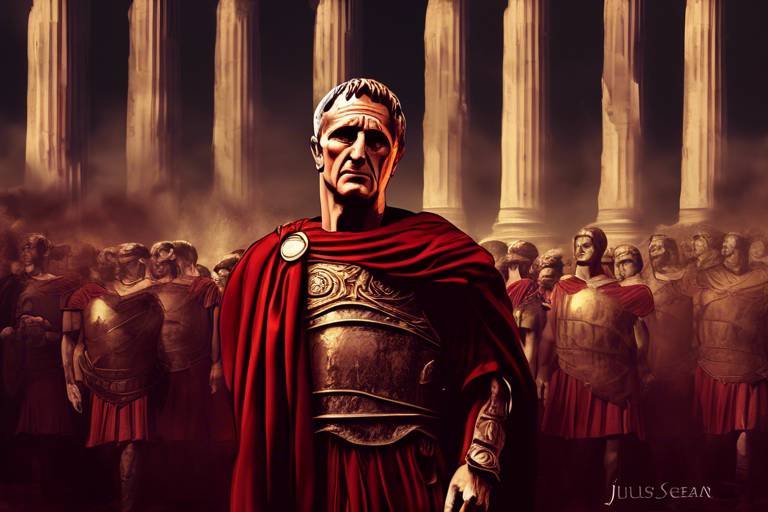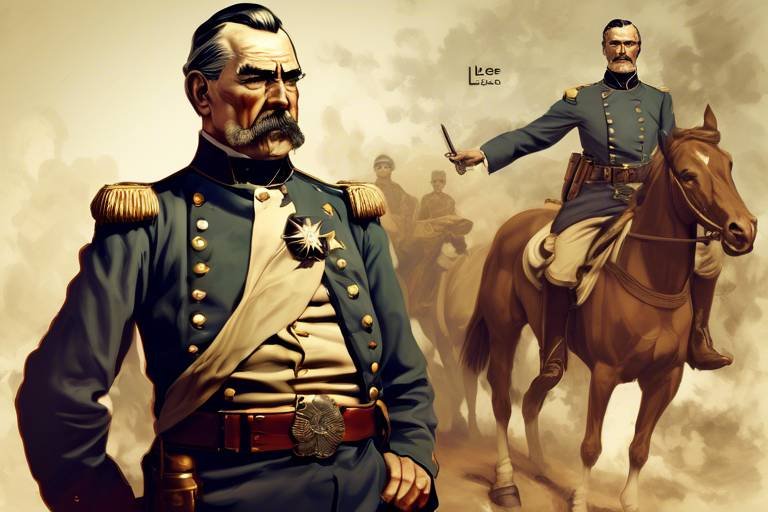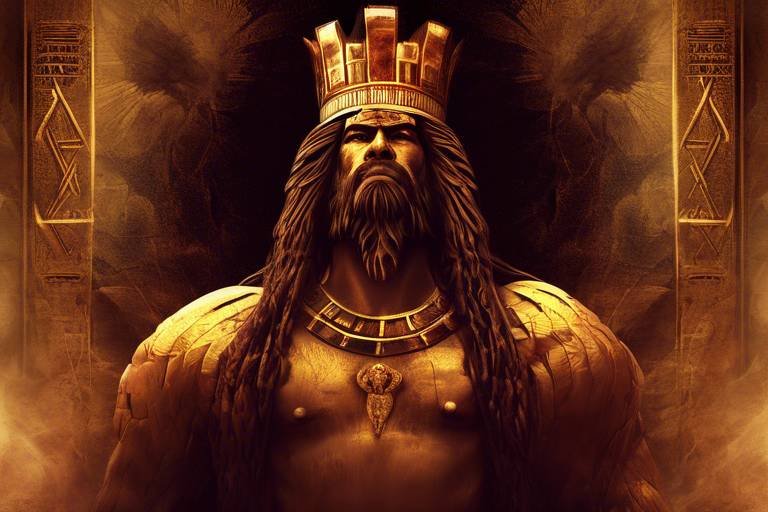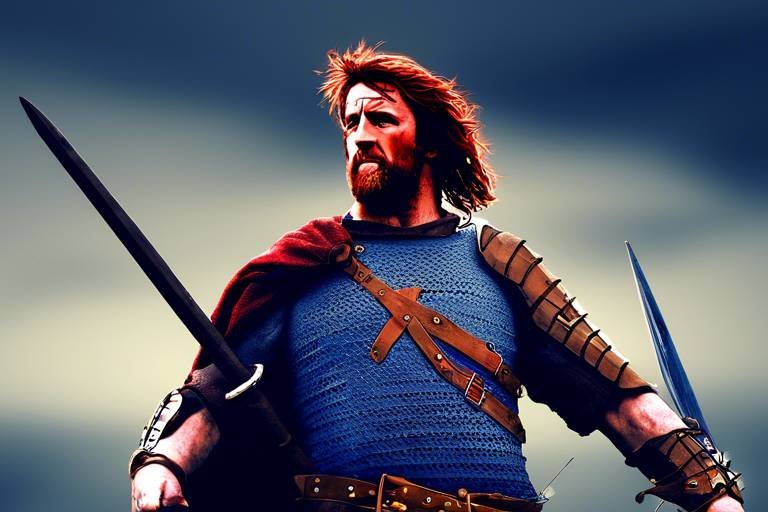Rommel: The Desert Fox
Erwin Rommel, famously known as the "Desert Fox," was a distinguished German general whose remarkable military career left an indelible mark on the history of World War II. Renowned for his exceptional leadership skills and innovative tactics in desert warfare, Rommel's strategic prowess and daring maneuvers set him apart as a formidable commander in the North African campaign.

Early Life and Military Training
Erwin Rommel, famously known as the Desert Fox, was a highly respected German general whose military career left a significant mark on history. His leadership in North Africa during World War II and innovative tactics in desert warfare set him apart as a strategic genius on the battlefield.
Erwin Rommel's early life and military training played a crucial role in shaping his future as a brilliant military strategist. Born in 1891 in Southern Germany, Rommel showed an early interest in the military and enrolled in the Imperial German Army at a young age. His experiences in World War I further honed his skills, exposing him to the realities of combat and instilling in him a deep understanding of military tactics.
Rommel's military education and training at various academies equipped him with the knowledge and expertise that would later define his leadership style. His dedication to continuous learning and improvement set him apart as a forward-thinking commander with a keen eye for innovation.
Rommel's command in North Africa marked a turning point in his military career, showcasing his strategic brilliance and tactical prowess. Leading the Afrika Korps, he orchestrated daring campaigns that surprised and outmaneuvered his adversaries, earning him the reputation of a fearless and skilled commander.
Notable battles such as Tobruk and El Alamein highlighted Rommel's ability to adapt to the harsh desert conditions and leverage his Blitzkrieg tactics to achieve decisive victories against superior forces.
Rommel's mastery of Blitzkrieg tactics, characterized by swift and coordinated attacks, allowed him to maintain the initiative on the battlefield and exploit enemy weaknesses effectively. His emphasis on speed, mobility, and surprise became hallmarks of his approach to warfare, enabling him to achieve remarkable success in challenging environments like the North African desert.
Rommel's complex relationship with Adolf Hitler and the Nazi regime posed significant challenges during his military service. While he enjoyed Hitler's initial favor and support, disagreements over strategy and political differences strained their alliance. Rommel's unwavering commitment to his troops and principles sometimes clashed with the demands of the Nazi leadership, leading to conflicts and tensions.
Despite his remarkable achievements in North Africa, Rommel ultimately faced defeat as Allied forces gained the upper hand. His involvement in the failed plot to assassinate Hitler further complicated his legacy, raising questions about his role within the Nazi regime and his moral stance. However, his military strategies and leadership principles continued to influence future generations of military tacticians.
After his death, Rommel's reputation underwent a transformation, with some hailing him as a hero of the German people and others scrutinizing his connections to the Nazi regime. The debate surrounding his legacy continues to this day, reflecting the complexity of his character and the enduring impact of his military contributions.
Rommel's innovative tactics and strategic insights have left a lasting imprint on modern military doctrine, inspiring military leaders to study his methods and adapt his principles to contemporary warfare. His emphasis on flexibility, initiative, and decisive action continues to shape military strategies around the world, highlighting the timeless relevance of his teachings.
Stay tuned for answers to common questions about Erwin Rommel's life, military career, and legacy.

Command in North Africa
Erwin Rommel's command in North Africa during World War II marked a pivotal period in his military career. Known as the "Desert Fox," Rommel demonstrated exceptional leadership and strategic prowess in the challenging desert terrain. His campaigns in North Africa, particularly the battles of Tobruk and El Alamein, showcased his daring and innovative tactics that earned him respect both from his own troops and his adversaries.
Rommel's approach to warfare in North Africa was characterized by his mastery of blitzkrieg tactics. He employed swift and decisive movements, utilizing surprise attacks and mobile warfare to outmaneuver the enemy. This strategy allowed him to maintain the initiative and keep his opponents off balance, gaining crucial advantages in the harsh desert environment where conventional tactics often faltered.
Despite facing significant logistical challenges and supply shortages, Rommel's leadership and ability to inspire his troops were instrumental in achieving success on the battlefield. His hands-on approach, leading from the front lines and sharing the hardships of his soldiers, fostered a strong sense of camaraderie and loyalty within his units.
Rommel's reputation as a skilled and daring commander grew during his time in North Africa, earning him the admiration of both friend and foe. His tactical acumen and audacious maneuvers, such as the famous "dash to the wire" at El Alamein, solidified his legacy as one of the most formidable military leaders of World War II.

Blitzkrieg Tactics
, famously employed by Erwin Rommel, were revolutionary in their approach to warfare. Instead of relying on static defenses, Rommel emphasized swift and coordinated attacks to disorient and overwhelm his adversaries. Picture a desert storm, moving quickly and unpredictably, catching the enemy off guard and striking with precision. This strategy involved the innovative use of mobile infantry, artillery, and air support to create a fluid battlefield where traditional lines of defense became obsolete. Rommel's ability to exploit weaknesses in the enemy's positions and strike with surprise and speed earned him the nickname "The Desert Fox."

Relationship with Hitler and the Nazi Regime
Erwin Rommel's relationship with Adolf Hitler and the Nazi regime was a complex and often fraught one. As a skilled military leader, Rommel gained Hitler's admiration for his successes in North Africa, earning him the nickname "The Desert Fox." However, Rommel was not a member of the Nazi Party and maintained a certain distance from its ideology.
Despite his military prowess, Rommel clashed with the Nazi leadership on several occasions. He openly criticized Hitler's strategic decisions, particularly in the later stages of the war when the tide had turned against Germany. Rommel's focus was always on the well-being of his troops and the effectiveness of his military strategies, rather than blind loyalty to the regime.
As the war progressed, Rommel became increasingly disillusioned with Hitler and the direction in which the Nazi regime was heading. He was aware of the atrocities committed by the regime and the devastating impact of Hitler's policies on both Germany and the occupied territories. This led Rommel to contemplate the idea of Hitler's removal from power.
Despite his growing disillusionment, Rommel remained a loyal soldier and continued to serve the German military. However, his involvement in the plot to assassinate Hitler in 1944 sealed his fate. Rommel was implicated in the conspiracy and given the choice of facing a public trial or taking his own life. He chose the latter to protect his family and preserve his legacy.
Rommel's relationship with Hitler and the Nazi regime remains a subject of debate among historians. While some view him as a reluctant participant in a brutal regime, others criticize him for not taking a more decisive stand against the atrocities committed by the Nazis. Ultimately, Rommel's legacy is a complex one, shaped by his military achievements, his moral dilemmas, and his ultimate sacrifice for what he believed was right.

Defeat and Legacy
Erwin Rommel, despite his remarkable success in North Africa, ultimately faced defeat in the harsh desert battlegrounds. His relentless pursuit of victory led him to push his forces to the brink, stretching their supply lines and resources thin. The pivotal turning point came in the decisive Battle of El Alamein, where Rommel's forces were outmaneuvered and overwhelmed by the Allied troops under the command of General Bernard Montgomery.
Following his defeat in North Africa, Rommel's legacy took a complex turn. Despite his unquestionable military prowess, his involvement in the failed plot to assassinate Hitler raised doubts about his loyalty to the Nazi regime. Forced to choose between allegiance to his country and his moral convictions, Rommel's actions in the face of tyranny would shape his posthumous reputation.
While some continued to view Rommel as a hero of the German military, others scrutinized his associations with the Nazi regime and questioned his role in furthering their agenda. The debate surrounding Rommel's legacy highlights the nuanced nature of history and the complexities of individuals caught in the tumultuous currents of war and politics.
Despite the shadow cast over his reputation, Erwin Rommel's impact on modern military tactics remains undeniable. His innovative strategies in mobile warfare and surprise attacks have influenced generations of military leaders, shaping the way wars are fought and won. Rommel's legacy serves as a reminder of the enduring power of strategic thinking and bold leadership in the face of adversity.

Posthumous Reputation
After Erwin Rommel's death, his reputation underwent significant changes and controversies. Initially celebrated as a brilliant military leader, Rommel was seen as a hero by many for his successes in North Africa and his strategic prowess. However, as more information about his involvement with the Nazi regime came to light, his legacy became more complex.
Some historians argue that Rommel was not a staunch Nazi supporter and was more focused on his military duties rather than political ideology. His participation in the failed plot to assassinate Hitler in 1944 further added to his image as a figure who stood against the totalitarian regime.
Despite these attempts to distance himself from the atrocities of the Nazi regime, Rommel's association with Hitler and the Third Reich continued to raise questions about his true beliefs and allegiances. This ambiguity has led to ongoing debates about his legacy and the extent of his culpability during World War II.
Over time, Rommel's posthumous reputation has been a subject of revision and reinterpretation. While some still view him as a brilliant military mind and a symbol of German military excellence, others criticize his actions and question his moral standing in light of his association with the Nazi party.
His legacy serves as a reminder of the complexities of history and the challenges of assessing individuals' roles in turbulent times. Rommel's posthumous reputation continues to spark discussions and reflections on the intersection of military leadership, politics, and morality.

Influence on Modern Military Tactics
Erwin Rommel's innovative tactics and leadership principles have had a significant influence on modern military strategies and warfare doctrines. His emphasis on mobility, flexibility, and decentralized command structures has been studied and implemented by military leaders around the world.
Rommel's use of surprise attacks and rapid maneuvering in the desert terrain of North Africa demonstrated the effectiveness of unconventional tactics in warfare. His ability to adapt quickly to changing circumstances and exploit weaknesses in enemy defenses set a precedent for modern military operations.
One of Rommel's key contributions to modern military tactics was his integration of air and ground forces to achieve strategic objectives. By coordinating closely with Luftwaffe units and utilizing air support effectively, Rommel was able to achieve decisive victories on the battlefield.
Rommel's emphasis on the importance of reconnaissance and intelligence gathering also influenced modern military doctrine. By prioritizing information gathering and analysis, Rommel was able to anticipate enemy movements and plan his own operations with precision.
Furthermore, Rommel's leadership style, characterized by leading from the front and sharing the hardships of his troops, set a standard for military commanders in terms of morale and unit cohesion. His ability to inspire loyalty and dedication among his soldiers remains a model for leadership in modern military organizations.
Frequently Asked Questions
- What made Rommel such a successful military leader in North Africa?
Rommel's success in North Africa can be attributed to his innovative use of blitzkrieg tactics, which involved swift and unexpected attacks to disorient and defeat his enemies. His ability to adapt to the harsh desert conditions and his hands-on approach to leadership also played a crucial role in his victories.
- Did Rommel have any conflicts with the Nazi regime?
Rommel had a complex relationship with the Nazi regime. While he was initially supportive of Hitler and the regime, he later became disillusioned with their leadership. Rommel's involvement in the plot to assassinate Hitler showcased his opposition to certain aspects of Nazi policies.
- What was Rommel's legacy after his defeat in North Africa?
After his defeat in North Africa, Rommel's legacy remained mixed. While some continued to view him as a brilliant military strategist and a hero, others scrutinized his association with the Nazi regime. However, his impact on modern military tactics and strategies remains significant.





